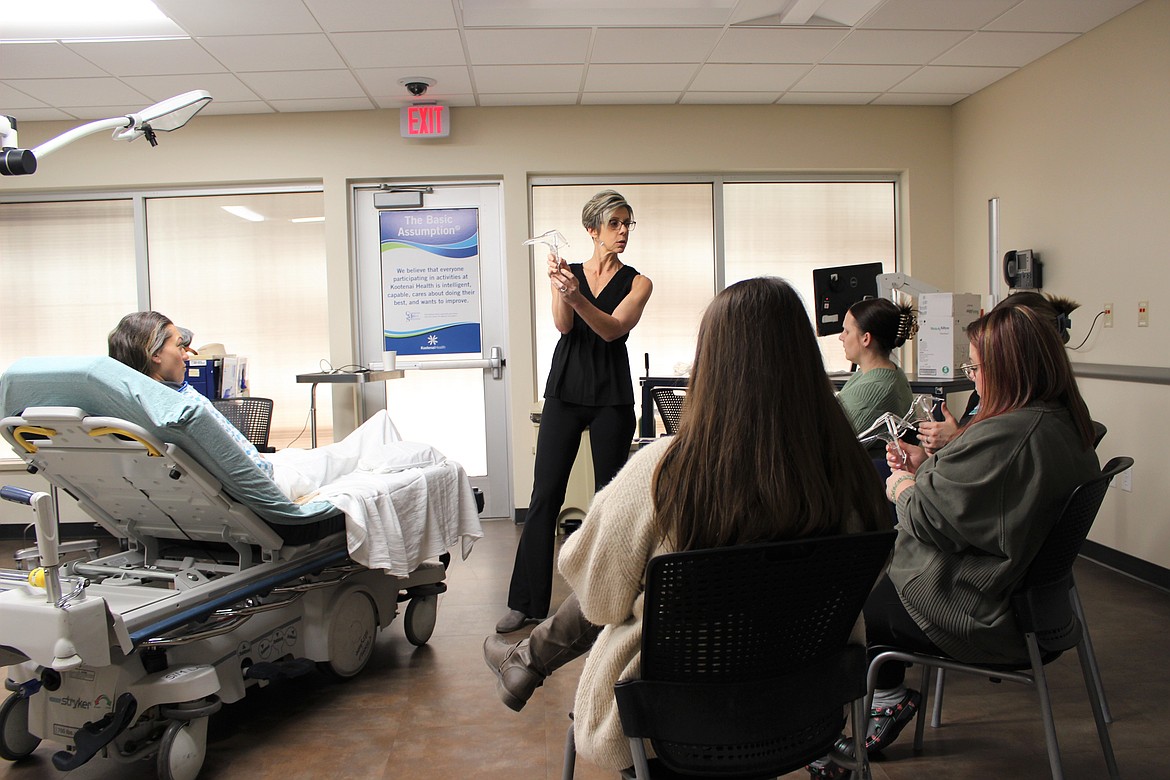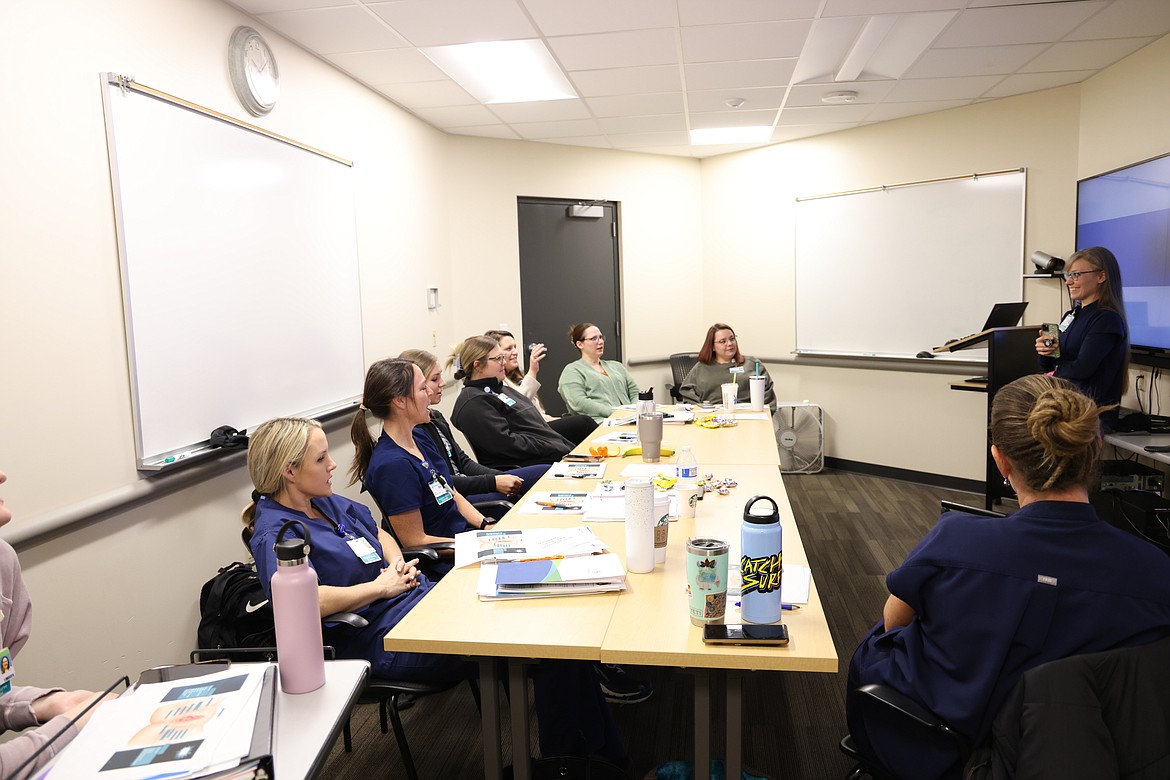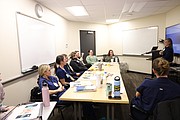Preparing nurses to support assault victims
The first time Megan Lorincz conducted a sexual assault examination in an emergency room, it was because she was the senior nurse on shift, so despite having no training for dealing with an assault victim or with taking forensic evidence, she conducted the exam.
Lorincz is now the manager for the Forensic Nurse Examiner program for Kootenai Health, one of the only programs training nurses to be Sexual Assault Nurse Examiners in the West. Lorincz is now able to train other nurses so they don’t have to share the feelings she experienced being so unprepared to conduct a rape kit.
“You fear that you’ll be subpoenaed,” said Crystal Burris, a SANE certified registered nurse who conducted her first sexual assault examination in the same circumstances.
Burris enrolled in Lorincz's forensic program because she's been seeking more training for assault cases in the 10 years since her first examination.
“I was basically chosen at random to do a sexual assault exam, or collect a rape kit, and I had no previous training,” she said. “They don’t teach you this in nursing school. They don’t teach you forensics, sexual assault care or how to talk to a sexual assault patient.”
The course is 64 hours of training, much of it done by Lorincz, followed by 40 hours of clinical lab training before students complete a full set of clinical examinations with two simulated patients.
The result will be 24 fully trained on-call SANE nurses starting April 1, available to the Kootenai Health Emergency Department. The forensic program will also reach surrounding counties when nurses can train at Kootenai Health to provide sexual assault care to people who need it, where they need it.
When the course reaches approval by the International Association of Forensic Nurses for full implementation in April, it will be one of only five forensic examination courses available west of the Mississippi. Colorado, Alaska and Texas are the only other states besides Idaho offering fully certified courses, with one already in Idaho Falls.
This course is funded by grants so nurses currently enrolled don’t have to pay anything to learn vital skills for dealing with the emotionally complex situations of examining victims of assault.
When Burris first started pursuing classes to be able to handle sexual assault examinations, she used vacation time to attend conferences to learn to take evidence.
“They don’t give you training because they expect nurses to be able to just read the instructions, or read the box,” Burris said. “The hardest part is just talking to the patient and knowing how to approach them.”
Lorincz remembers the same experience in her ER, where her nursing skills were expected to be enough to talk to a female victim of a sexual assault.
“I don’t want to keep doing this unless we get training,” Lorincz told her bosses.
Because training resources were limited, Lorincz pursued a solution, and the forensic program at Kootenai Health should bring nurses from across the Pacific Northwest to train in her hospital under her program, to be certified in working with victims of trauma and assault.
Following their examinations, nurses will have the knowledge to return to their own hospitals and teach other nurses the skills they need to deal with assault and sexual assault trauma.
The result is that typically 80% more evidence will be collected by a forensically trained nurse than an untrained nurse, which can be the difference between winning or losing a court case.
In 2021, Kootenai Health processed 29 sexual assault exams for children under 14, and 68 adult or adolescent exams for people over 14.
With forensic training, nurses could also be better prepared to testify as an expert witness in assault and sexual assault cases.
“I feel way better equipped now than ever before,” Burris said. “Especially with this training.”
Working with a nurse experienced in trauma and assault can be the difference between someone filing a report or pursuing charges and giving up.
“I want them not to regret coming in and having a kit collected,” Burris said.
With the forensics program starting in April the hospital will have a group of on-call nurses who are trained to gather evidence, testify in court, and most importantly, speak to victims in a way that supports them.
Burris hopes that with her training she’ll be able to give victims the tools they need to get serial offenders off the streets and restore faith in the courts for sexual assault charges.
But her main goal is to help one person at a time.



